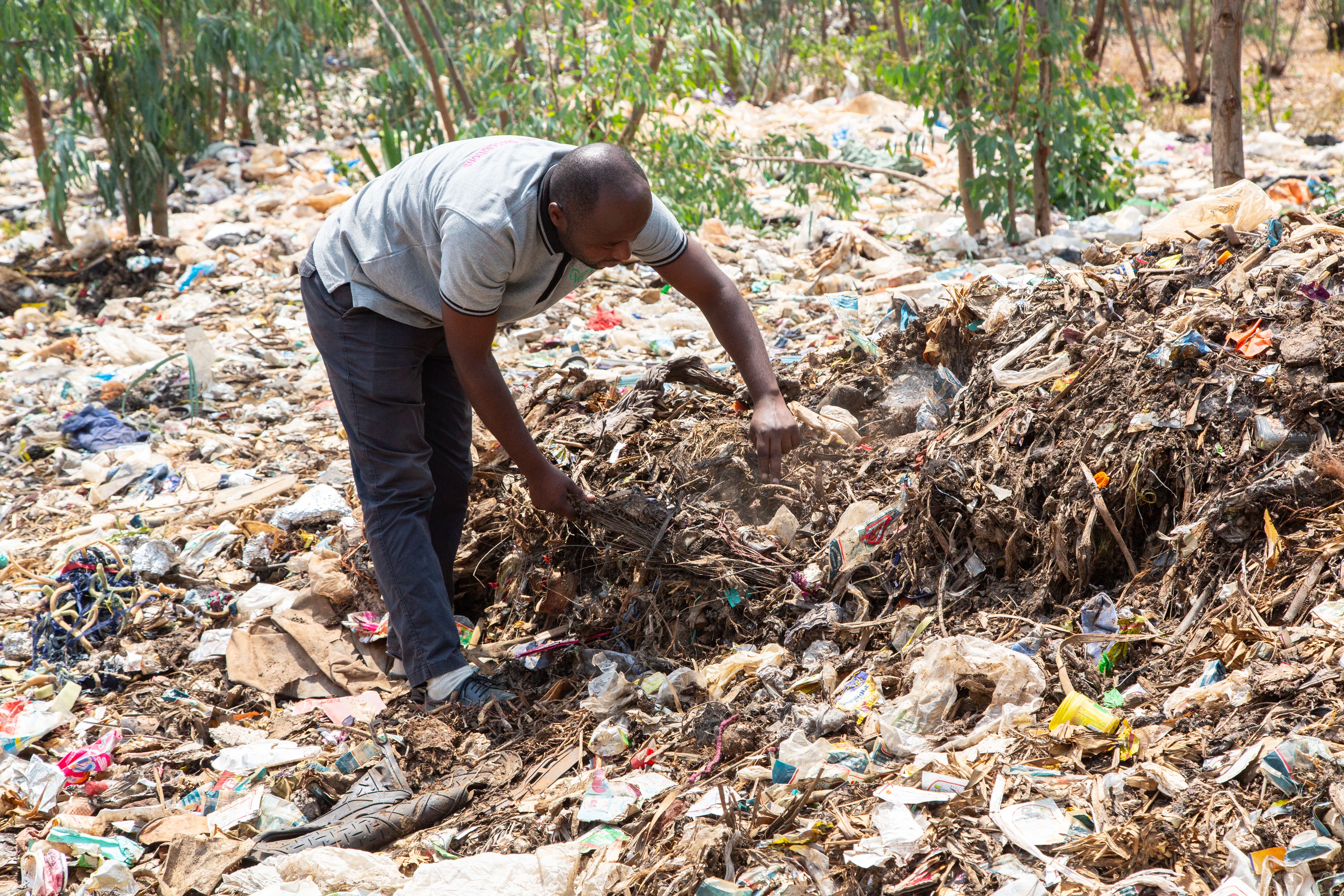Rwanda BioSolutions
Rwanda BioSolutions is working with the community and local authorities to transform waste into high quality compost, through biotechnology.
Their compost relies on three different types of inputs: Rabbit dung and urine, household and business waste, and general waste from the local dumpsite. The latter is sorted into degradable and non-degradable waste, for processing. The team create a pile from the inputs, which are then treated with effective microorganisms to speed up the process of decomposition. As a result, they are able to produce compost in a third of the time that it would take without the microorganisms.
This compost business was developed to meet the need within the community for affordable organic inputs that would support soil health in the long term. Rwanda BioSolutions, like many of the SMEs in CIRF Cohort 2, understand the need to feed the growing population of Rwanda in a way that is sustainable, but also preserves soil health. Rwanda BioSolutions have witnessed the negative impact of inorganic fertilizer on farms in Bugesera district and are committed to finding a better solution that supports soil health and the environment.
They are also seeking a soil solution that’s affordable to their communities in the long term. Industrial or inorganic fertilizer can cost six or seven times the amount of the equivalent organic fertilizer. Even with vital government subsidies, inorganic fertilizer is still a significant investment for farmers.
As well as selling affordable compost, Rwanda BioSolutions is also running programs to support the local community, providing waste management, training and farmer field schools to encourage the uptake of organic fertilizers and conservation practices. They also work to support teen mothers who are trying to create an income through farming.
Like other business and farmers in the neighborhood, they face significant challenges with transportation. As well as collecting waste from the dumpsite and the surrounding area, they have to find ways to deliver compost to farmers. In a fairly remote location along dirt roads, the movement between sites become challenging, particularly during rainy season.
Already embracing some circular practices, the Rwanda BioSolutions team are excited to find new ways to share ideas, knowledge and information with Cohort 2 of the CIRF program, and discover innovative ways to transform waste, respond to their challenges and improve their business model.
Rwanda BioSolutions employs 2 permanent staff, 4 part time staff, and 30 casual workers.

